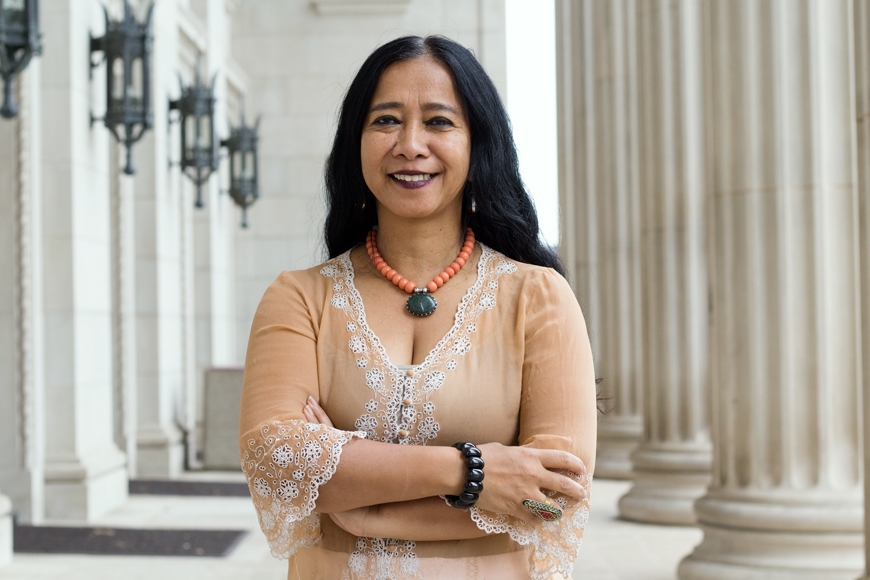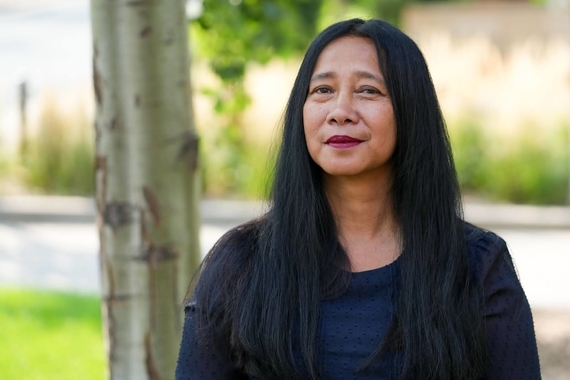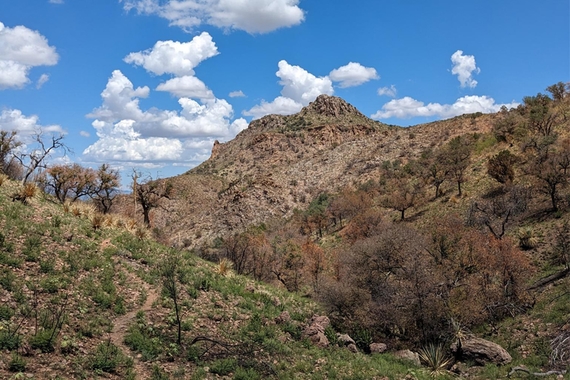History of a Dancer
Associate Professor Rachmi Diyah Larasati of the Department of Gender, Women & Sexuality Studies (GWSS), grew up in Indonesia under the 32-year Suharto dictatorship, where art was a major component of the national identity—as was violence.
Larasati’s personal experience has inspired both her research and her teaching. Her first book, The Dance That Makes You Vanish: Cultural Reconstruction in Post-Genocide Indonesia, situates her own experience as a dancer into a larger political analysis. As a teacher and advisor, her focus lies in helping students understand their relationship to—and impact on—the world around them.
Likewise, in her new role as the Director of Undergraduate Studies (DUS) in GWSS, she aims to broaden students’ understanding of the complex forces that inform the political and economic realities around them, including colonialism, sexism and the patriarchal system, and nationalism.
An Irrepressible Force
Larasati knows all too well the impact of those forces. While living as a dancer and professor of arts in Indonesia she had to follow a strict set of political values and could not oppose the “ideal mode of expression expected of a citizen of Indonesia and its pedagogy.” If she did, she faced violence, possible detention, or—as some of her family members experienced—punishment by death.
But Larasati refused to be censored. Her dances, she explains, “were an attack on the establishment of the narrative by Indonesian New Order because [she] refused to remember differently, making many women movement leaders would not be erased or forgotten. The dance especially demonstrated how women in everyday activities of survival automatically become feminists not only in the local but also in transnational spaces.”
Larasati moved permanently to the United States in 1997 and taught dance at UCLA and UC-Riverside. With a PhD from the Department of History & Theory (UC-Riverside) and the Department of World Arts & Cultures/Dance (UCLA), she came to the U in 2007, first in the Department of Theatre Arts & Dance, where she was Director of Dance from 2014-2017, and since fall 2018 in GWSS.
Dance & Identity
Larasati’s research examines the intersections between aesthetics, the question of value, and critical consciousness, in looking at identity politics and dance. She delves into concepts such as the “unwanted body”: bodies made undesirable by social norms or policies, such as trans bodies, immigrant bodies, and racialized bodies. Her early experiences under the Suharto regime taught her that the concept of “the body, the practitioner, and memory of them that vanished, the knowledge and its narrative, the dancing were also [categorized as]... unwanted knowledge, an unwanted aesthetic, within the construction of Indonesian identity,” she explains.
Larasati uses her experience, scholarship, and dance technique to help students appreciate difference and build an understanding of diverse cultures and gender concepts. One aspect of this involves building awareness that some nonbinary claims have been a long-established practice in many parts of the global south. For example, the gender nonbinary is a feature of traditional shamanism attached to knowledge of gender construction and ecological sustainability.
Her approach to advising is characterized by a philosophy of care that stems from her personal and academic backgrounds. “I am continuously looking at my own history as a tool of reflection,” she says. That history, marked by social and political discrimination as a form of inherent systematic violence but also by the experience of public engagement, has made her “passionate about the pedagogy of caring” and given her a fresh enthusiasm for taking on her new role.
Larasati is excited to be a part of GWSS and to teach and guide students from their first interactions with the department all the way to graduation. She is energized by her colleagues’ work, both on- and off-campus, noting the department’s strong culture of encouraging scholarship, active citizenry, and community engagement. She is also inspired by those fighting for equality in the global south and the US.
“I am surrounded by amazing colleagues and students,” she says, “I feel respected, in that every single individual in this department has brilliant scholarship, teaching, and a massive role outside of the University.”



